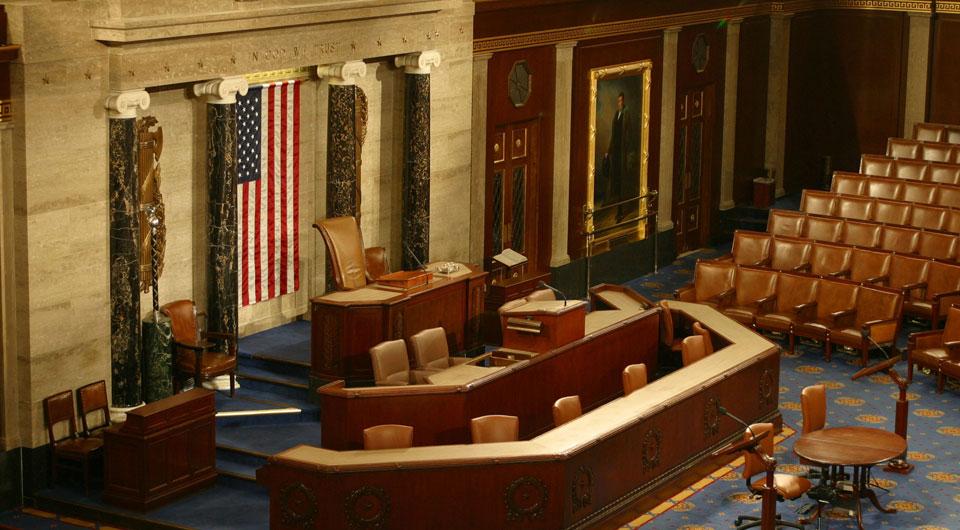New Law's Court Restriction Sparks Constitutional Crisis, Separation of Powers Fears
Section 70302 of Trump's new bill limits judicial enforcement, raising alarms over executive overreach and rule of law.

NEW YORK -- The One Big Beautiful Bill Act of 2025, a sprawling legislative package advanced early in President Trump’s second term, utilized the budget reconciliation process to navigate a narrow 215-214 passage in the House of Representatives. This behemoth bill, exceeding 1,000 pages, encompasses extensive reforms across tax, spending, and regulatory landscapes.
Deep within this legislative labyrinth lies Section 70302, a provision that fundamentally alters the enforcement capabilities of federal courts.
Titled "Restriction on Enforcement," Section 70302 directly prohibits federal courts from using contempt sanctions to enforce injunctions or temporary restraining orders if no security bond was required from the plaintiff under Federal Rule of Civil Procedure 65(c). This restriction applies whether the order was issued prior to, on, or after the enactment of the section, effectively nullifying a critical judicial tool retroactively and prospectively for a vast swath of cases where bonds are typically waived, particularly in public interest litigation.
The judiciary's contempt power is not a mere procedural footnote; it is an inherent authority, described by the Supreme Court as "essential" for enforcing judgments and ensuring compliance with court orders. Without it, judicial decrees risk becoming, as justsecurity.org noted, "mere advisory opinions." Section 70302's mandate, therefore, cripples this vital function, making court orders unenforceable if a bond – often waived to ensure access to justice – was not posted. This has been characterized by campaignlegal.org as an "attack on the judicial branch."
This legislative maneuver ignites profound constitutional concerns regarding the separation of powers. Article III of the Constitution implicitly grants courts the power to enforce their own orders, a principle underscored in cases like Michaelson v. U.S. ex rel. Chicago, St. P., M. & O. Ry. Co. (1924), where the Supreme Court cautioned that Congress cannot strip courts of authority essential to their enforcement functions. Some legal scholars argue Section 70302 should be declared unconstitutional for violating this fundamental tenet.
The practical consequence is a significant tilt in power towards the executive branch, potentially fostering an environment of impunity. The provision appears designed to shield the Trump administration from accountability when it breaks the law. Officials could theoretically ignore court injunctions without immediate fear of contempt, particularly in cases brought by civil rights or public-interest plaintiffs where bond waivers are common. This dynamic directly challenges the rule of law, which dictates that court orders are binding on all, including the President.
The rationale for including such a contentious provision seems rooted in the Trump administration's frustrations with numerous judicial injunctions during its first term, and more quickly piling up during the second. Courts ruled against the first administration over 170 times, often halting key initiatives. By requiring bonds or rendering injunctions toothless, Section 70302 aims to deter such lawsuits, a motive made explicit when President Trump, in March 2025, instructed federal agencies to demand bonds to "stop judicial overreach." The inclusion in a budget reconciliation bill was a strategic move to bypass a potential Senate filibuster, though its minimal budgetary impact has led to arguments that it violates the Senate's Byrd Rule.
The ramifications, if the Big Beautiful Bill Act is passed, would be severe and manifold. Thousands of existing court orders could become instantly unenforceable, sowing legal chaos and uncertainty, potentially deterring future public-interest litigation due to the risk of prohibitive bond requirements. Such an erosion of judicial authority, where courts issue orders they cannot enforce, diminishes their legitimacy and could precipitate a constitutional crisis if direct defiance by the executive becomes commonplace. It is not an overstatement to say that Section 70302 erodes the separation of powers that has made America's legal system the envy of the world.
Legal challenges to Section 70302 are widely anticipated, with many experts, cited across sources like justsecurity.org and truthout.org, believing courts will find it an unconstitutional infringement on judicial power. However, should it stand, it represents an unprecedented shift in the constitutional balance, effectively allowing the executive to operate with diminished judicial oversight, a scenario that, as campaignlegal.org concludes, means "the rule of law and our democracy itself" are at stake.
